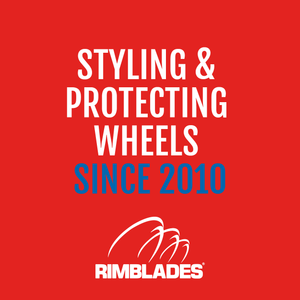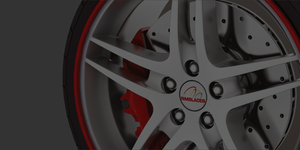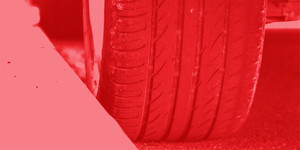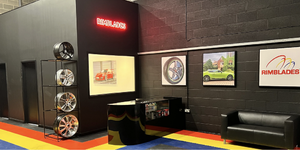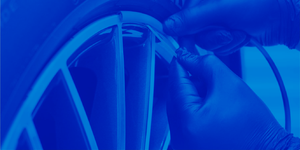Rimblades' Top 6 Tips on Looking After Your Alloys
Oct 30, 2020
Alloy wheels are a staple feature on most enthusiast driver’s cars, improving both the aesthetics and performance. They’re often also fairly expensive and do need a degree of maintenance to keep them looking great.
Here’s Rimblades top 6 tips for looking after your alloy wheels.
1. Cleaning
Especially as we head into the winter months, we recommend cleaning once per week, but this really depends on conditions and how often you drive. When cleaning alloys, it's best to choose a cleaner that's acid-free and pH neutral to protect both the wheel and rim protector, but also to be kinder to the environment. The first step is to remove any loose grit, dirt, road salt and brake dust from the wheel with a hose or jet wash. Next, apply your wheel cleaning product as directed, and work into the wheel using a specialist soft brush or cloth (an old wash mitt also works well, but remember never to use it on paintwork afterwards). At this point, you may want to move your car half a wheel turn so that you can work on any parts you may have missed. Once cleaned thoroughly, the cleaning solution is usually left on for a very short period (see instructions as times do vary) before rinsing with clean water and dried either naturally or using a synthetic chamois.
As wheel experts, we’ve created our very own alloy wheel cleaner that offers a deep rich clean without damaging either alloy or your rim protectors. It comes in a 500ml bottle. Get yours here: https://rimblades.com/collections/rimblades-shop/products/rimblades-alloy-wheel-cleaner
2. Waxing and Polishing
Wax or polish can be used on alloys but it depends on the wheel finish. Generally, wax should be used on painted or coated wheels and polish on everything else. Always ensure you choose a good quality product over a cheap alternative. Wax or polish should be applied using a clean cloth or towel. It can then be buffed until the desired shine is achieved.
3. Sealing
As a periodic alternative to waxing and polishing, you could consider using a wheel sealant after cleaning. Wheel Sealants are designed to seal clean wheels to make future wheel cleaning easier whilst also reducing the build-up of harmful brake dust. Applying a wheel sealant every few months will add a further shine to your alloys and will give a degree of lasting protection against dirt and debris build-up.
4. Tyre dressing
A high-quality tyre dressing will really help set your alloys off, and because Rimblades are a bond on technology, you’re free to cover the entire tyre right down into the bead area. Tyre dressings are available in either matte or high shine versions. Just make sure you invest in a good quality brand and allow it to dry thoroughly - that way the product shouldn’t fling all over the vehicle when you’re on the move. A word of caution though. We don’t suggest the use of tyre shine before using our bond on products as any silicone overspray can greatly reduce adhesion. If you’ve used tyre shine in the 6 months prior to fitting Rimblades, use our tyre shine remover to remove all traces first: https://rimblades.com/collections/rimblades-shop/products/rimblades-silicone-tyre-shine-remover
5. Refurbishment
Sometimes, even when regularly keeping on top of your alloys, damage can occur. Whilst dust, salt, and dirt can be cleaned off fairly quickly and easily, your wheels can be permanently damaged by flying stones, road debris and verge/kerb impacts. Thankfully (and depending on damage) it is usually possible to get your alloys refurbished. Whilst superficial damage can sometimes be rectified by a mobile repairer, the best refurbishments usually involve booking in with a diamond cut specialist. Diamond cutting is a destructive process which involves removing (cutting) part or all of the wheel surface, before relacquering or repainting.
6. Install Rimblades
Considering the average cost of diamond cut refurbishment for alloy wheels is around £115 per wheel, it makes sense to simply cover the damage - or better still protect against any damage happening in the first place.
Thankfully, Rimblades can do either and give you and your vehicle an instant styling upgrade. Our range of products provides a DIY bond-on wheel protection solution that offers ALL the impact performance required, as well as the flexibility to quickly change out protectors. Our products are designed to fit a huge range of vehicles with a stunning range of unique colour options to choose from, allowing you to match your car's paintwork or make your wheels stand out with a contrasting colour. Installing 'Blades will both protect your rims and cover up existing damage so you don't have to fork out for costly repairs.

